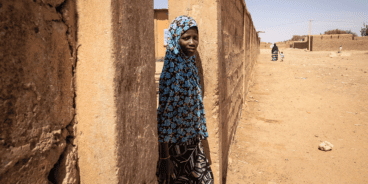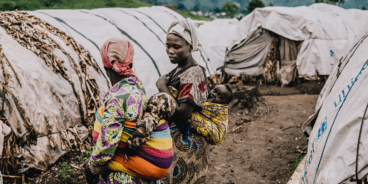
Atrocity Alert No. 23: Syria, Democratic Republic of the Congo and Burundi
Atrocity Alert is a weekly publication by the Global Centre for the Responsibility to Protect highlighting and updating situations where populations are at risk of, or are enduring, mass atrocity crimes.
Syria
The temporary cessation of hostilities was declared to be over by the Syrian government on 19 September, one week after it started, following an escalation in clashes between government forces and armed rebels across the country. The fighting culminated on Monday in a horrific air strike on a UN humanitarian convoy in transit to opposition-held areas of Aleppo. At least 12 humanitarian workers were killed, including the Syrian Arab Red Crescent director Omar Barakat, and 18 aid trucks were destroyed.
Deliberate targeting of humanitarian workers is a war crime. The UN and other relief agencies have suspended all humanitarian convoys across combat lines in Syria. The United States government, which negotiated the ceasefire with Russia, has declared that it considers Russia responsible for the convoy bombing, based upon the terms of the cessation of hostilities agreement. Russia has stated that there is no evidence that the convoy was destroyed in an airstrike and has suggested that the trucks may have caught fire.
As world leaders meet this week for the opening of the 71st UN General Assembly, the conflict in Syria has featured prominently in speeches and side events, and will be highlighted in a UN Security Council meeting today, 21 September.
It is imperative that words of condemnation and horror finally translate into action. The Security Council must pressure all parties to the conflict to re-establish and respect the ceasefire, safely facilitate the delivery of unrestricted humanitarian aid, and recommit to negotiations for a political solution. The Security Council must investigate and hold the perpetrators of Monday’s airstrike and all other mass atrocity crimes in Syria accountable under international law.
Democratic Republic of the Congo
On 19 September political demonstrations throughout the Democratic Republic of the Congo resulted in violent clashes between protestors and security forces. According to reports from Kinshasa, more than 17 people were killed, hundreds were detained by police, and five opposition headquarters were burnt down as violence continued overnight. The UN Secretary-General and Office of the High Commissioner for Human Rights have condemned the violence. As discontent regarding the presidential election process grows, there is a risk of increasing state violence targeting perceived opposition supporters. Given DRC’s long history of civil war, mass atrocities and political instability, it is essential that all political leaders urge their supporters to refrain from further violence. The government should ensure that security forces exercise maximum restraint in response to protests. The UN Mission in the DRC must be prepared to protect populations at risk of further violence.
Burundi
On 20 September 2016 the UN Independent Investigation on Burundi (UNIIB) issued its final report to the Human Rights Council. The report detailed gross human rights abuses, attributing responsibility for the vast majority of violations to the government. Although it acknowledged that relative levels of violence in Burundi have decreased since December 2015, UNIIB asserted that this has come largely as a result of increased oppression. UNIIB concluded that some incidents may amount to crimes against humanity and that, “given the country’s history, the danger of the crime of genocide looms large.” It is essential for the government of Burundi to immediately end its assault on organized dissent, strengthen the rule of law and end impunity for crimes and abuses committed since April 2015. In light of the UNIIB report, the UN Security Council and African Union should urgently reassess options for human rights monitoring and an enhanced UN policing mission in Burundi.


